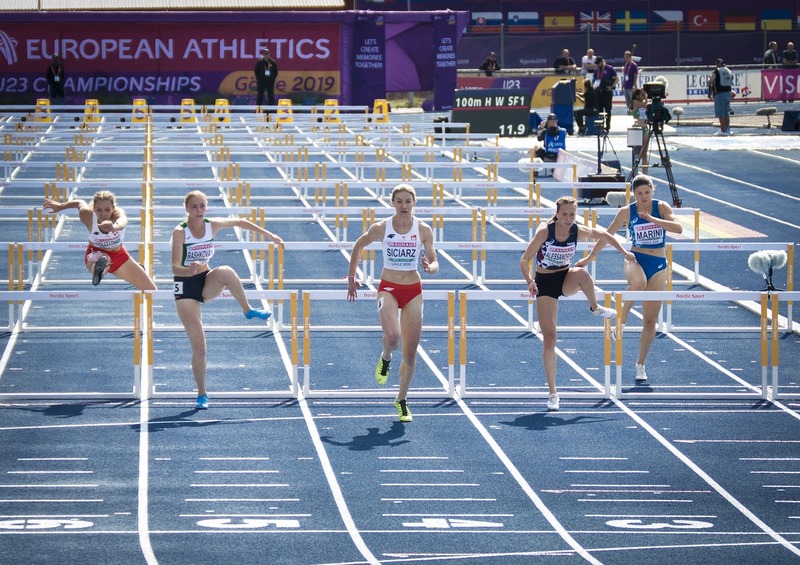The Role of Nutrition in Enhancing Athletic Performance
Nutrition plays a foundational role in supporting and enhancing athletic performance. Whether an athlete is a weekend warrior or competing at an elite level, their dietary choices significantly influence energy levels, endurance, recovery, and overall physical development. The right balance of macronutrients and micronutrients allows the body to function optimally during training and competition. Athletes who pay close attention to their nutrition often find they can push harder, recover faster, and maintain peak condition more consistently than those who do not.

Macronutrients and Their Functions
The body relies on three key macronutrients—carbohydrates, proteins, and fats—to produce energy and maintain vital physiological processes. Among these, carbohydrates serve as the body’s most efficient energy source, particularly during high-intensity physical activity. They are quickly converted into glucose, which muscles use to power performance. Proteins play a critical role in muscle repair and development, while fats act as a long-lasting energy reserve and contribute to hormone regulation. A balanced intake tailored to the athlete’s sport and training regime ensures these macronutrients support both performance and recovery effectively.
The Influence of Tailored Nutrition and Online Tools
As athletes become increasingly data-driven, many use digital tools to monitor training, recovery, and overall wellness. This analytical approach is mirrored in the realm of online sports betting, where bettors use a wide range of information—including fitness levels, injury updates, and nutrition strategies—to inform their decisions.
For instance, understanding how an athlete's nutrition plan impacts stamina and recovery can help bettors better predict in-game performance and endurance under pressure. Some prefer platforms such as online betting not on GamStop for their flexibility, broader markets, and fewer restrictions, which allow users to act more dynamically based on nuanced insights like these. These platforms are often considered better by users who want greater autonomy, faster access to markets, and fewer verification hurdles than traditional bookmakers.
Just as athletes favour personalised nutrition for peak performance, savvy bettors look for platforms that allow them to act on personalised, real-time data.
Hydration and Athletic Output
Water is a crucial yet often overlooked component of sports nutrition. Hydration affects every aspect of performance, from muscle function to cognitive sharpness. Dehydration, even at minimal levels, can lead to decreased endurance, poor concentration, and increased risk of injury. Athletes need to monitor fluid intake before, during, and after activity, especially in hot or humid conditions. Incorporating electrolytes can also be essential in maintaining the body’s fluid balance. Monitoring hydration levels through simple indicators like urine colour or bodyweight changes post-exercise can help athletes stay on track and avoid the performance dips associated with fluid loss.
Supplements: A Supportive Role
While whole foods should always be the primary source of nutrients, supplements can help fill gaps in an athlete's diet. Protein powders, creatine, branched-chain amino acids (BCAAs), and multivitamins are commonly used to support recovery, enhance performance, or address specific deficiencies. However, not all supplements are created equal, and athletes must choose high-quality, tested products that comply with sport regulations. Consulting with a registered dietitian or sports nutritionist ensures that supplementation supports rather than undermines the training plan. When used wisely, supplements can offer a practical way to meet heightened nutritional needs without compromising food quality.
Recovery Through Nutrition
Recovery is where much of an athlete’s progress happens. Proper nutrition facilitates muscle repair, replenishes energy stores, and reduces inflammation after intense training. Protein intake is critical in this phase to support tissue regeneration, while carbohydrates help restore glycogen levels. Including anti-inflammatory foods like berries, leafy greens, and omega-3 fatty acids can also aid recovery. Adequate recovery nutrition minimises the risk of overtraining and promotes sustained progress. Developing a recovery-focused eating strategy can significantly influence how quickly an athlete bounces back and how well they can perform in subsequent sessions.
Nutrition for Endurance vs. Strength Athletes
Different sports place different demands on the body, and nutrition must be adapted accordingly. Endurance athletes, such as runners and cyclists, require more carbohydrates to sustain prolonged activity, while strength athletes benefit from higher protein intake to support muscle growth and repair. Fat intake also plays a role, especially for endurance athletes engaging in longer sessions where stored fat becomes a key energy source. Tailoring nutrition to the specific metabolic and muscular demands of the sport ensures that the body receives the right fuel in the right amounts at the right times.
Creating a Long-Term Nutrition Strategy
To maximise athletic performance, nutrition must be viewed as a long-term commitment, not a short-term fix. Developing sustainable eating habits that support both day-to-day training and long-term health is essential. Athletes should focus on whole, nutrient-dense foods, remain mindful of portion sizes, and stay educated about how their bodies respond to different dietary inputs. Working with professionals, staying adaptable, and remaining committed to ongoing learning are key to building an effective nutrition strategy that evolves with the athlete over time. This integrated approach helps ensure peak performance, longevity, and overall well-being.